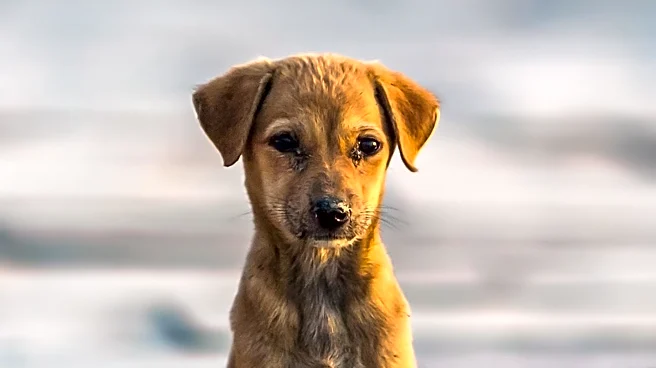What's Happening?
A study led by the University of Oxford suggests that kissing may have originated in the shared ancestor of humans and other large apes approximately 21 million years ago. Published in Evolution and Human Behavior, the research indicates that Neanderthals
likely practiced kissing as well. The study involved tracing the evolutionary relationships among primates to understand the origins of kissing, which is seen in many animal species. Researchers defined kissing as non-aggressive, mouth-to-mouth contact without food transfer and used this definition to identify modern primates known to engage in kissing. The study concluded that kissing has deep roots in large apes and has persisted through evolution, still observed in most species within this group.
Why It's Important?
The study provides insights into the evolutionary background of kissing, a behavior that holds strong emotional and cultural significance for many human groups. Understanding the origins of kissing can shed light on the diversity of sexual behaviors exhibited by primates and humans. The research highlights the importance of integrating evolutionary biology with behavioral data to study social behaviors that do not fossilize, like kissing. This approach allows scientists to make informed inferences about traits in both modern and extinct species, contributing to a broader understanding of human evolution and social interactions.
















